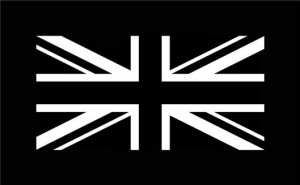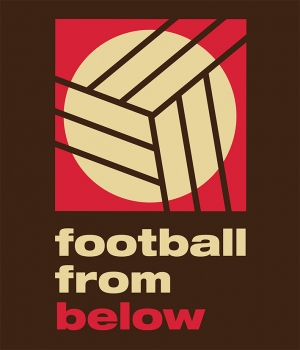
What do they know of cricket, that only cricket know?
Mark Perryman criticises the exclusive way some sports are managed, and suggests some progressive policies to bring out all the benefits of sport – for the many, not the few.
Cricket’s version of the ‘years of hurt’ – 44 in this case – came to a spectacular end early last Sunday evening. Thrilling, eventful, and glorious – no wonder the front pages the following morning were full of it. The sub-editor who came up with the headline ‘Champagne Super Over’ is surely in line for a hefty bonus.
For a certain version of a miserabilist leftism, all this amounts to is a concocted, nationalistic, distraction from more important matters at hand. For others, it’s hip-hip-hooray! The world has changed at the flick of a super over and superior number of wickets taken! The nation will take up bat and ball! Obesity crisis, what crisis! The truth lies somewhere in between, or as CLR James famously put it ‘What do they know of cricket, who only cricket know?’
The hoo-hah over the tournament’s TV broadcasting rights sold off to the highest bidder, a Sky TV subscription channel, illustrates this perfectly. The England and Scotland women’s World Cup campaigns attracted record-breaking viewing figures, with over 12 million for England’s semi-final. But until the final was after much pressure shared with Channel 4, the cricket World Cup scraped by on a few hundred thousand viewers.
The contrast couldn’t be more obvious. Ever since the birth of satellite TV, hyped-up claims have been made about the virtue of its ‘generous purchase’ of TV rights. Yet in every single case numbers following the sport on TV have plummeted, popular interest has been squandered, and participation levels have declined.
It’s been a disaster. Why on earth would any host nation allow the once-in-a-lifetime opportunity of a domestic World Cup to be be squandered in this way? Yet this summer we have had not one but two examples, in cricket and netball.

Netball in particular has wasted the biggest chance it has ever had to grow the sport. Most women in this country have played the game during their schooldays, but the overwhelming majority promptly gave it up when they left school, never to return to the court. There’s been a modest reversal of this depressing trend following England’s gold medal in the Commonwealth Games, but nothing like the kind of platform a World Cup offers.
These sports’ governing bodies, and there are plenty of other examples, clearly cannot be trusted with the wider interests they are charged with. Of course most are hard-pressed for funds, but when participation is sacrificed for the short-term injection of cash, and to boost profits of privately-owned media companies, then something is clearly amiss. Some – though not enough – of the broadcasting rights to sporting events are regulated. They are not available to the satellite channels, and have to be broadcast on terrestrial TV. As a first step, an incoming Labour government should significantly extend that list, to include any domestic World Cup or World Championship for starters, and the Ashes too.
Nanny state? No! It’s standing up for the nation’s sporting interests. Those interests are centred on two roles sport performs like no other cultural activity – encouraging participation and framing a common-sense nationhood.
Sport is socially constructed
On the same weekend as that epic cricket World Cup final, terrestrial TV also treated us to the Wimbledon finals and the British Grand Prix. Both attracted huge audiences, yet neither will lead to many viewers taking up driving round Silverstone as a hobby, or picking up a tennis racquet for the first time.
That is because participation isn’t just about what we can watch on TV from the comfort of our own sofa, it is about providing the means to get us off that sofa too. Sport is socially constructed. A local go-kart track for the child inspired by Lewis Hamilton’s 100mph derring-do might do for starters, but the numbers who can afford to enter this hugely expensive sport at a competitive level are minuscule.
And tennis? The annual platform Wimbledon provides tennis frames it as an intensely upper middle-class pursuit, from the Royal Box guest list to strawberries and cream followed by a glass of Pimms. A revolutionary reinvention of tennis would reframe it as an urban, inner-city sport. A network of concrete tennis courts would not only be vandal-proof, they would require virtually zero maintenance. Add on an army of local authority coaches providing the much-needed structure to encourage those who pick up racquet and ball, and the whole sport could become about mass participation
It could become a sport for the many, not the few – ring any bells? And the few who made it up the ranks to play at Wimbledon would be a pleasant surprise and a welcome side effect, not the sum of our ambition. Having regulated the broadcasting rights, an incoming Labour Government should run an audit of every sport’s governing body’s finances. Those that failed to meet tougher objectives around mass participation would be deprived of the generous state support they receive, from taxpayers and Lottery players. Totalitarian? Not at all, it’s just common sense – these sports have lost the right to be trusted with the organisation and management of cultural activities which are so important to people’s health, happiness and well-being.
Participation in physical activity is key to the nation’s health. But sport can deliver even more than that. A World Cup, in any sport, reaches the parts of a sporting nation like nothing else. When Liverpool won the Champions’ League the blue half of Merseyside looked away with studied indifference, while they were hardly dancing in the streets of Manchester, North London and elsewhere either.
A World Cup win is of a different scale. The casual observer is mobilised to become hardened fan for a month at least. In Eric Hobsbawm’s brilliant phrase ‘An imagined community of millions seems more real as a team of eleven named people.’
But of course that ‘imagined community’ is hugely contested, never more so than in this era of the Brexit impasse. Jacob Rees-Mogg clearly hadn’t spent very long on the playing fields of Eton if he could in all seriousness tweet after England’s World Cup victory, ‘We clearly don't need Europe to win.’

Yet this was an England team with an Irish-born captain, an opening batsman born in South Africa, a man of the match born in New Zealand, and wicket-takers born in Barbados and the grandson of a Pakistani immigrant. It was diverse, multicultural, and all the better for it. Of course this isn’t enough to roll back a resurgent popular racism – but it’s a start, an unrivalled platform for a very different imagined nation to the one of Rees-Mogg’s elitist and xenophobic imagination. Nothing reveals faux-populism like a politician’s ignorance of sport.
What do they know of cricket who only cricket knows? Not enough! The failure to understand the social impact and construction of sport leaves the political left incapable of contributing to the kind of national conversation that Sunday’s World Cup win has ignited.
Fortunately, what CLR James also taught us is that sport matters for its own sake too. For many millions of people, sport is not a distraction from the real world, but an invaluable and central part of that world. Let’s join them, savouring without apologies the victories of England and Wales – and along the way, hopefully learning lessons for the next Labour government’s more progressive policies around the ownership, control and regulation of sport.
Mark Perryman is the co-founder of the self-styled ‘sporting outfitters of intellectual distinction’ aka Philosophy Football. Their World Champions T-shirt, celebrating the diverse and multicultural England team is available here. Illustration is by Hugh Tisdale/Philosophy Football.
















